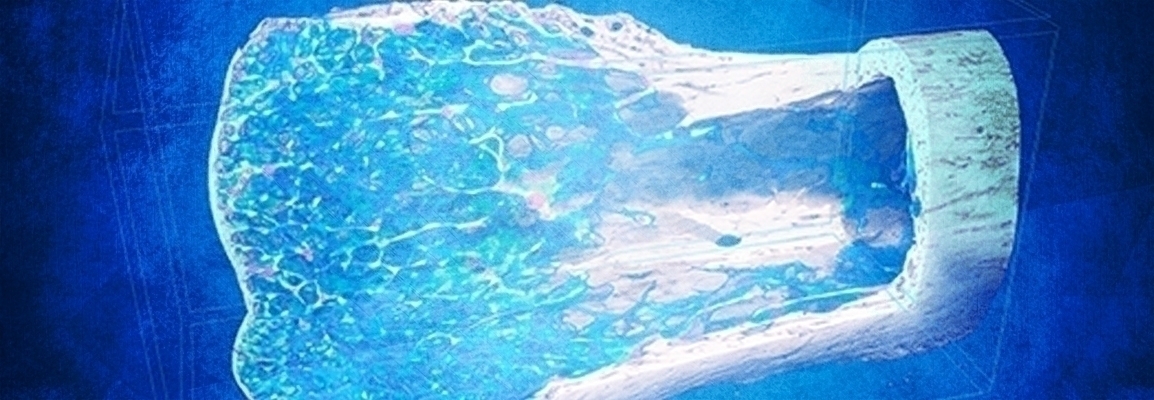

Longitudinal 4D Monitoring of Bone Mass and Architecture and (Re)Modeling Events Using in Vivo micro-CT
Studying murine bone (re)modeling events (formation and resorption) over time requires the analysis of bone mass and architecture at several different time points and the use of a large cohort of animals. An alternative approach to this cross-sectional study design, ex-vivo micro-CT and laborious 2D histological analysis is to utilize the power of in vivo micro-CT. This newly emerging technology allows assessment of bone mass and architecture in 3D with time as the 4th dimension. It will also allow 3D image registration to quantify bone formation and resorption between “reference” and “target” timepoints. This powerful tool offers information on bone (re)modelling events along the entire bone in 3D; a major revolutionary advantage over the existing traditional limited methodologies for the assessment of bone. It will also lead to stronger statistics as every animal could serve as its own control. Consequently, fewer animals are used in experiments resulting in a great cost reduction. In this webinar, Dr. Behzad Javaheri will discuss how he has used Bruker’s high-resolution in vivo SkyScan 1176 to perform 4D micro-CT.
This webinar took place on October 24th, 2019
Who to Expect
Dr. Javaheri will describe the benefits of 4D micro-CT to monitor murine bone mass and architecture and the underpinning (re)modelling events driving these changes.
Key Topics
- The disadvantages of using conventional methods
- The advantages of using 3D while bringing in the element of time to provide a longitudinal scan
- The methodology related to this longitudinal scanning
- The methodology used to analyze 4D bone mass and architectural changes across the entire tibia
- The methodology used to determine (re)modeling events at the organ level
Who Should Attend?
People from universities, hospitals, pharma R&D, surface labs, and ethical committees who are involved in, reduction refinement and replacements (RRR), evolutionary biology, mechanobiology, endocrinology, tissue engineering, mechanical engineering, biomedical engineering, genetic screening and MDs working in research positions.
Speaker
Dr. Behzad Javaheri
Research Associate at Royal Veterinary College
Dr. Behzad Javaheri obtained PhD in bone biology from the Royal Veterinary College London (RVC) under the supervision of Profs Price and Lanyon and spent time in the USA with Profs Johnson and Bonewald. Dr. Javaheri is a Research Associate working with Prof Pitsillides, funded by RVC and Haoma Medica Ltd.